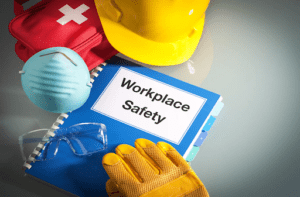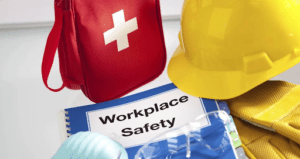5 Essential Steps to Kickstart Your HSE Career


Table of Contents
Embarking on a career in Health, Safety, and Environment (HSE) can be both rewarding and challenging. With the growing emphasis on workplace safety and environmental conservation, the demand for skilled HSE professionals has never been higher. Whether you’re a recent graduate or looking to switch careers, the path to a successful HSE career involves strategic planning and dedication. Here are five essential steps to help you kickstart your journey in the HSE field.
Building Your HSE Career Network
1. Acquire Relevant Education and Certifications
The foundation of a successful HSE career begins with the right education and certifications. Pursuing a degree in environmental science, occupational health and safety, or a related field can provide you with the necessary knowledge base. Additionally, obtaining professional certifications such as NEBOSH, IOSH, or OSHA can significantly enhance your employability. These certifications are recognized globally and are often considered a prerequisite for many HSE jobs. They not only demonstrate your commitment to the field but also your proficiency in HSE practices.
2. Gain Practical Experience
Hands-on experience is invaluable in the HSE sector. Internships, co-op programs, or volunteer positions can provide practical experience and exposure to real-world challenges. These opportunities allow you to apply theoretical knowledge in practical scenarios, develop problem-solving skills, and understand the dynamics of working in an HSE role. Many organizations prefer candidates with some level of practical experience, so early exposure can be a significant advantage in securing your first HSE job.
3. Develop a Strong Professional Network
Networking plays a crucial role in any career, and HSE is no exception. Building a robust professional network with other HSE professionals, attending industry conferences, and seminars, and joining professional associations can open doors to job opportunities and provide valuable insights into the industry. Platforms like LinkedIn can also be instrumental in connecting with industry experts and staying informed about the latest trends and job openings in the HSE field.
4. Stay Updated with Industry Trends and Regulations
The HSE field is continuously evolving, with new regulations, practices, and technologies emerging regularly. Staying informed about these changes is crucial for anyone looking to build a career in HSE. Subscribing to industry journals, participating in online forums, and attending workshops and training sessions can help you stay abreast of the latest developments. Being knowledgeable about current trends and regulatory changes not only makes you more competent but also more attractive to potential employers.
5. Showcase Your Skills and Expertise
As you acquire education, certifications, and experience, it’s important to effectively showcase your skills and expertise to potential employers. Tailor your resume to highlight your HSE-related qualifications, experiences, and any specific projects or achievements that demonstrate your capabilities in the field. A well-crafted cover letter that conveys your passion for HSE and how you can contribute to the prospective employer’s objectives can further strengthen your application.
Embracing Technology and Innovation in HSE
In an era where technology is advancing at an unprecedented pace, embracing technological innovations is crucial for those starting their HSE career. Digital tools and software have transformed the way health, safety, and environmental issues are managed, making processes more efficient and effective. Familiarizing yourself with the latest HSE technologies, such as data analytics platforms, incident management systems, and environmental monitoring software, can give you a competitive edge. Being adept at using technology to analyze data, predict risks, and implement safety measures can not only enhance your job performance but also position you as a forward-thinking HSE professional.
Discover More: IOSH Managing Safely | IASP OSHA 30 Hours Construction Industry
Pursue Specialization Areas
The field of Health safety and environment career is vast, covering various aspects from occupational health to environmental management and safety engineering. As you progress in your HSE career, consider specializing in a particular area. Specialization can make you more attractive to employers looking for experts in specific aspects of HSE, such as hazardous waste management, fire safety, construction safety, or ergonomics. Pursuing further education or certifications in your area of interest can deepen your expertise and open up new career paths within the HSE domain.
Kickstarting your career in HSE is an exciting journey that offers the opportunity to make a significant impact on workplace and environmental safety. By following these steps—gaining the right education and certifications, acquiring practical experience, networking, staying informed about industry trends, showcasing your skills, embracing technology, developing soft skills, and pursuing specialization—you can build a robust foundation for a successful and rewarding HSE career. The path to becoming an effective HSE professional is one of continuous learning and growth, and with dedication and passion, you can contribute to creating safer, healthier, and more sustainable environments for everyone.
FREQUENTLY ASKED QUESTIONS
A career in HSE typically requires a degree in environmental science, occupational health and safety, or a related field, along with professional certifications such as NEBOSH, IOSH, or OSHA.
Internships, co-op programs, volunteer positions, or entry-level HSE jobs are excellent ways to gain practical experience in the field. These opportunities allow you to apply theoretical knowledge in real-world scenarios.
Networking with other HSE professionals and participating in industry events can provide job opportunities, mentorship, and insights into industry trends, making it a crucial step in building a successful HSE career.
Subscribing to industry journals, joining online forums, and attending workshops and training sessions are effective ways to stay informed about the latest developments in HSE.
Focus on your HSE-related qualifications, practical experiences, certifications, and any specific projects or achievements that showcase your skills and expertise in the field. Tailor your resume and cover letter to match the job requirements.






